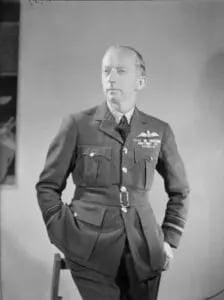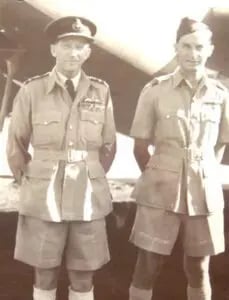A Hidden History of Aviation
For the next and final part in our familial history of the Kerby name, we have to look up; way up in fact.
Soaring through the skies at incredible speeds and heights is one thing the descendants of George William Kerby have in common. We can trace their lives along the same flight path of the history of aviation.
It starts with Harold Spencer Kerby, son of George William, born in 1893.

Harold Spencer would go on to be part of one of the most iconic aspects of early aviation. At 17 years old, he left Ontario and went to the UK to join the Royal Naval Air Service in 1915 — as the Royal Air Force had yet to be created.
He served as part of the Gallipoli Campaign during the First World War, scoring over a half dozen aerial victories during his tenure. He was awarded the Distinguished Service Cross for his service, with the citation stating that it was for “the great courage and initiative shown by him on many, occasions, notably on the 12th August 1917, when he attacked hostile machines returning from a raid on England. One hostile machine was driven down by him to the water, where it was observed to turn over.”
Before the war had ended, he was promoted to flight commander. And his son would follow in his footsteps!

It wouldn’t be long before the Second World War occurred, and there — standing next to Harold Spencer — was his son, Richard Spencer Kerby. A pilot in his own right, who also joined the Royal Air Force at 17 like his father. Richard Spencer was a flight leftenant bomber and part of the air transport command. Both Richard and Harold Spencer Kerby would find themselves fighting at the same time on the side of the allies during the campaign of North Africa.